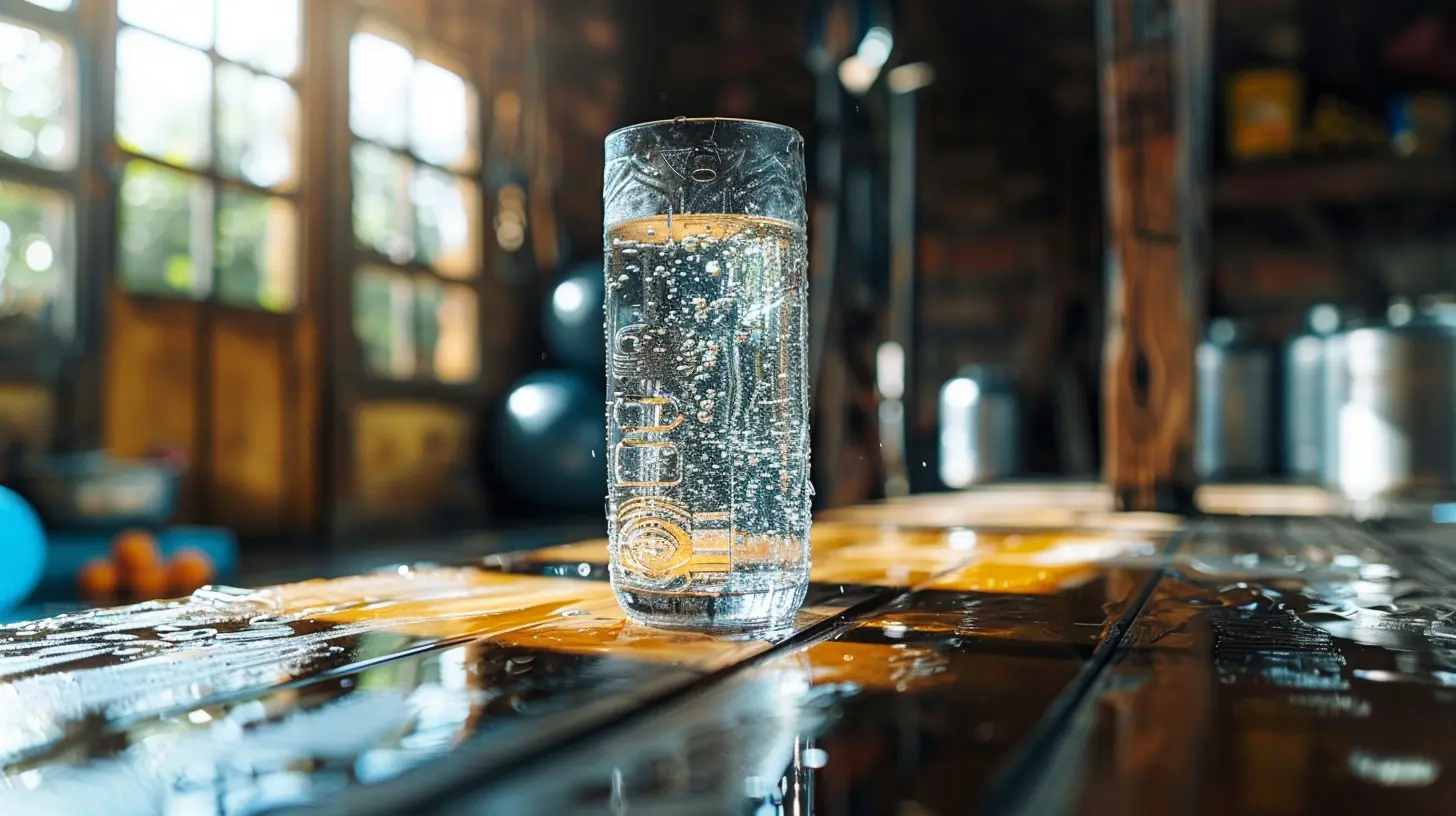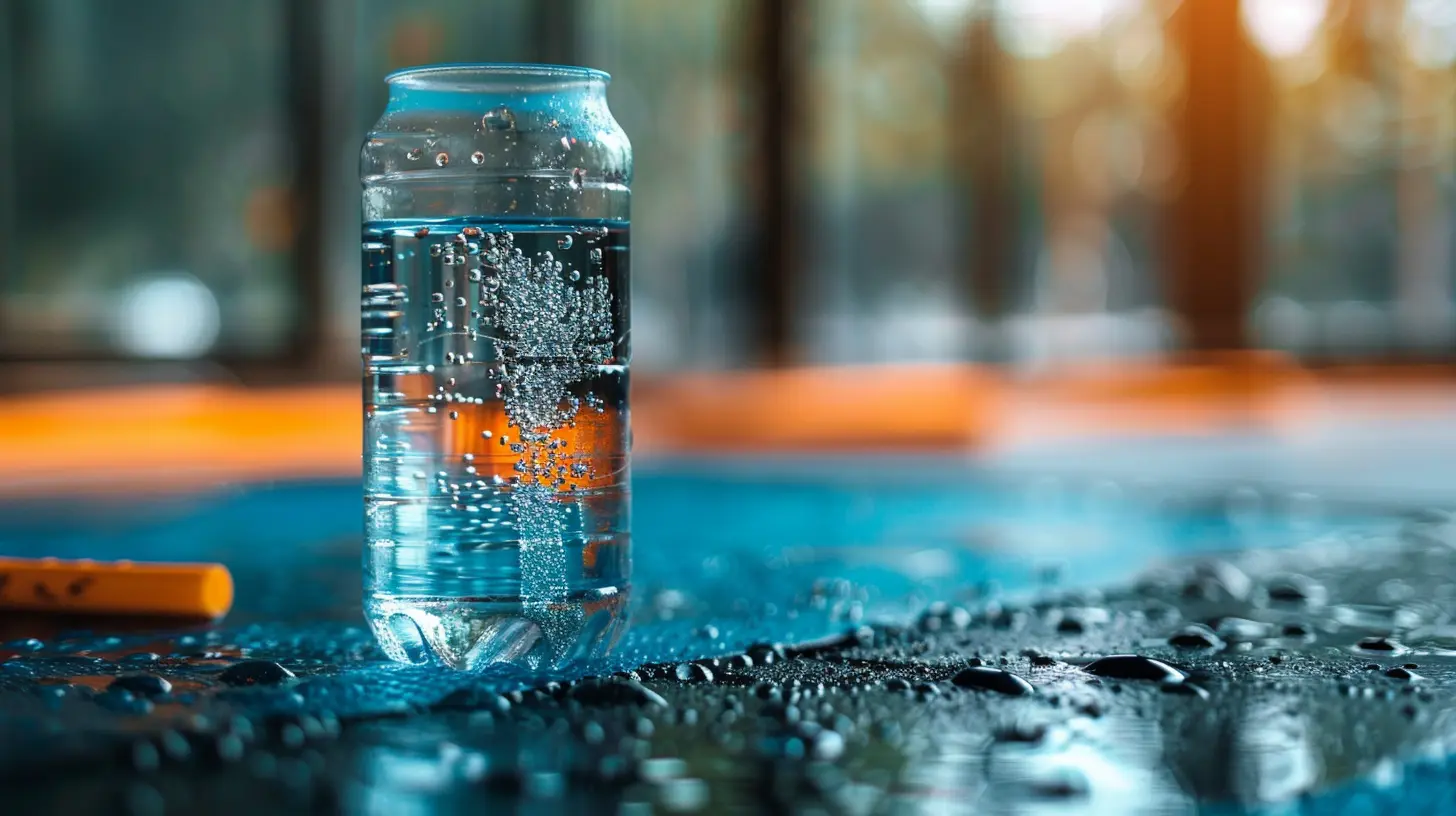Importance of Hydration During Strength Workouts
27 October 2025
Staying hydrated is just as crucial as lifting weights when it comes to strength training. Think about it—would you drive your car without oil? Of course not! Your body needs water just like a car engine needs lubrication. It keeps everything running smoothly, fuels your muscles, and helps you push through those intense workout sessions.
But how exactly does hydration impact your strength training? And how much water should you be drinking to maximize performance? Let’s dive deep into the science and practical tips to keep you properly hydrated. 
Why Hydration Matters in Strength Workouts
Water does much more than just quench your thirst. It plays a critical role in muscle function, recovery, and overall performance. Here's why hydration is a game-changer for your strength training routine:1. Enhances Muscle Performance
Did you know that even a 1-2% loss of body water can significantly impact muscle strength and endurance? When you're dehydrated, your muscles don’t contract efficiently, making you feel weak and fatigued. Water lubricates your joints, cushions your tissues, and ensures your muscles fire properly.2. Regulates Body Temperature
Strength training heats up your body, making you sweat. Sweat is your body’s way of cooling down, but excessive sweating without replenishing fluids can lead to dehydration. When you don’t drink enough water, your body struggles to regulate temperature, leading to overheating, dizziness, and even heat exhaustion.3. Prevents Muscle Cramps and Injuries
Ever experienced a nasty muscle cramp mid-rep? Dehydration could be the culprit. Water helps transport electrolytes like sodium, potassium, and magnesium, which are essential for muscle contractions. A lack of hydration throws off this balance, increasing your risk of cramps and injuries.4. Aids in Nutrient Transport
Your body relies on water to transport essential nutrients, including proteins and oxygen, to your muscles. Without proper hydration, your muscles won’t receive the fuel they need to perform at their best.
Signs of Dehydration During Workouts
Not sure if you're drinking enough water? Your body gives you several warning signs when you're running low on fluids. Watch out for:- Dry mouth or extreme thirst
- Fatigue and dizziness
- Dark yellow urine (light yellow is ideal)
- Muscle cramps or spasms
- Headaches
- Reduced endurance and strength
If you notice any of these symptoms while lifting weights, grab a bottle of water immediately! 
How Much Water Should You Drink While Strength Training?
Hydration isn't just about chugging a gallon of water before hitting the gym. It’s about maintaining the right balance before, during, and after your workout.Before Your Workout
Start your hydration routine early. Aim to drink 16-20 ounces of water about 2 hours before training. This gives your body enough time to absorb the fluids and optimize muscle function.During Your Workout
While lifting weights, sip 7-10 ounces of water every 15-20 minutes. If you’re engaging in an intense or long session, consider adding electrolytes for better hydration.After Your Workout
Rehydrating post-workout is crucial for muscle recovery. Drink 16-24 ounces of water for every pound of weight lost during exercise. Adding a pinch of sea salt to your water can help replenish lost sodium.
The Role of Electrolytes in Hydration
Water alone isn’t always enough—your body also needs electrolytes to maintain hydration and muscle function. These minerals include:- Sodium – Helps retain water and prevent dehydration.
- Potassium – Regulates muscle contractions and prevents cramps.
- Magnesium – Supports muscle relaxation and recovery.
- Calcium – Essential for muscle contractions.
If you sweat excessively or train for long periods, consider replenishing your electrolytes with coconut water, sports drinks, or electrolyte tablets.
Can You Overhydrate?
Yes! While dehydration is a serious issue, overhydration (hyponatremia) can be just as dangerous. Drinking excessive amounts of water without replenishing sodium can dilute your blood, leading to nausea, confusion, and even severe health risks.The key is balance—hydrate consistently but don’t overdo it. Listen to your body and adjust based on your workout intensity, climate, and sweat levels.
Tips to Stay Hydrated Throughout the Day
Hydration isn’t just for the gym—it’s a daily commitment. Here are some simple hacks to keep your water intake on point:- Start your day with water – Before reaching for coffee, drink a glass of water to kickstart hydration.
- Carry a water bottle – Having a bottle nearby serves as a constant reminder to take sips throughout the day.
- Eat hydrating foods – Watermelon, cucumbers, oranges, and celery help boost hydration naturally.
- Set reminders – If you tend to forget, use phone alarms or apps to remind you to drink water.
- Drink before you feel thirsty – Thirst is a late signal of dehydration—stay ahead of it.
The Bottom Line
Hydration is a secret weapon in strength training. Without enough water, your muscles weaken, your endurance drops, and your recovery slows down. So, next time you hit the gym, don’t just focus on protein intake—grab your water bottle and fuel your body the right way.Your gains will thank you.
all images in this post were generated using AI tools
Category:
Strength TrainingAuthor:

Laura Hudson
Discussion
rate this article
1 comments
Vivian Foster
Staying hydrated during strength workouts is crucial for optimal performance and recovery. Adequate water intake helps maintain energy levels, supports muscle function, and prevents fatigue. Ignoring hydration can lead to decreased strength and stamina, ultimately hindering your progress. So, keep that water bottle handy and drink up before, during, and after your sessions!
November 20, 2025 at 3:31 AM

Laura Hudson
Absolutely! Hydration is key to maximizing performance and recovery during strength workouts. Keep sipping water to support your muscles and energy levels!


